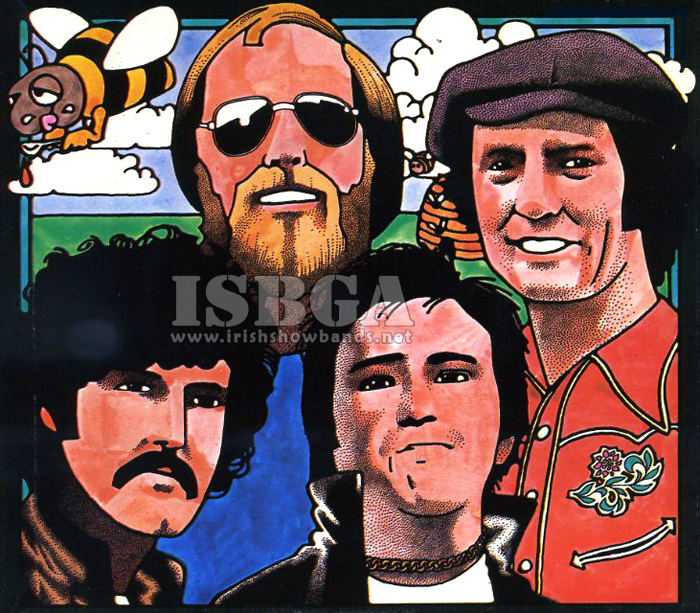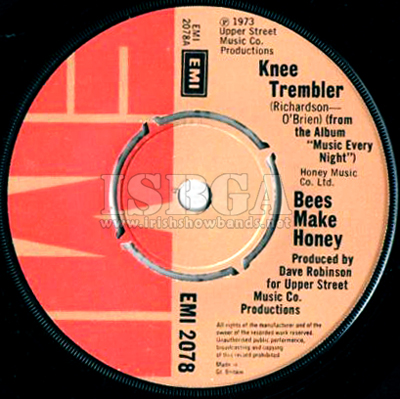|
Although the pub rock explosion is
remembered as a distinctly British, and, more specifically,
London-based phenomenon, more than a handful of its greatest
practitioners actually hailed from considerably further afield. Bees
Make Honey, one of the most fondly regarded of the genre's
originators, was founded on the remains of one of Ireland's most
popular showbands, The Alpine Seven and ground-breaking beat-group,
Bluesville.
Barry Richardson, moved to London in the late '60s, performing with
both the jazz act the Brian Lemon Trio and a country-rock group Jan &
the Southerners. Fellow Alpine Seven members Deke O'Brien and Mick
Molloy along with Ruan O'Lochlainn soon joined him in England and with
the lineup completed by American-born drummer Bob Cee, the unnamed
quintet settled into a residency alongside Eggs over Easy at the Tally
Ho pub in North London.
They officially became Bees Make Honey in January 1972, the name was
suggested by O'Lochlainn's wife, Jackie. Under the inventive aegis of
manager Dave Robinson, whom they shared with both Brinsley Schwarz
and, informally, Kilburn & the High Roads, the band graduated to other
venues on the fast exploding pub rock circuit; Robinson also oversaw
their first recordings, cut at Rockfield Studios in Monmouthshire
during 1972.
By 1973, Bees Make Honey was widely regarded as the most likely band
on the entire scene to make the transition into the big time; they
attracted enthusiastic press coverage across the media spectrum and,
by summer, the group had signed with EMI. Their first single, "Knee
Trembler," followed, but even as the band prepared their debut album,
'Music Every Night', the original quintet began to
splinter. Both O'Lochlainn and Bob Cee quit, the latter heading off to
Supertramp, appearing under his full name, Bob C Benburg. They were
replaced by drummer Fran Byrne from The Creatures, former Wheels
guitarist Rod Demick and keyboard player Malcolm Morley from 'Help
Yourself'.
This lineup toured in support of the album, but was extremely
short-lived. Within three months, Morley had quit to join Welsh
rockers Man; even more damaging, however, was the spring 1974
departure of founders O'Brien and Molloy. Richardson recruited new
members Willie Finlayson and Ed Dean (guitars) plus pianist Kevin
McAlea - the latter pair had most recently been working together in a
short-lived revival of legendary Irish rock band Skid Row.
In this form, Bees Make Honey cut a second album for EMI, only for the
label to reject it and drop the group from the roster. A move to the
DJM label proved similarly disastrous, with another album's worth of
material cut and then shelved. By Autumn of 1974, Bees Make Honey had
broken up, with Richardson going onto his own Barry Richardson Band.
Demick and Finlayson subsequently resurfaced in Meal Ticket and Byrne
moved onto Ace.
~ with thanks to Dave Thompson, All Music Guide
|


